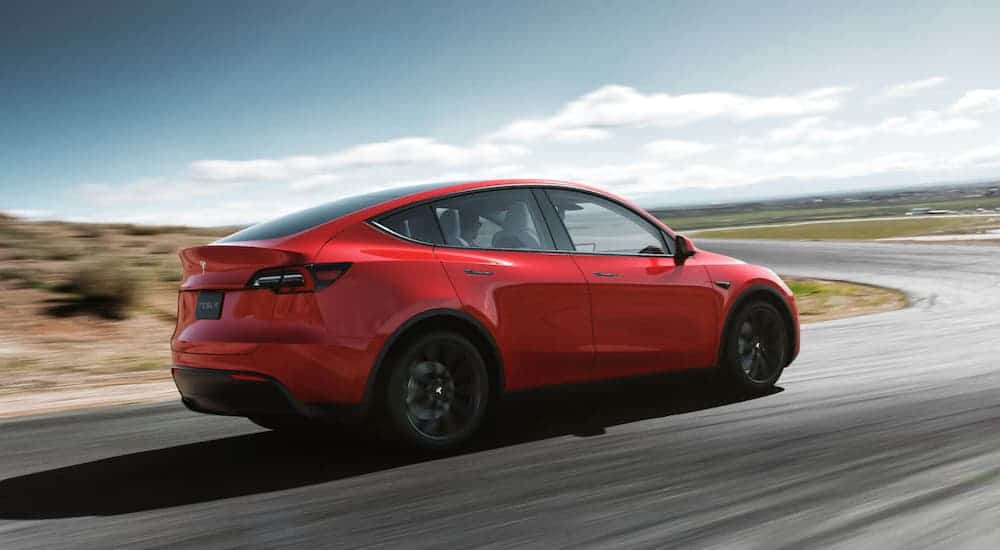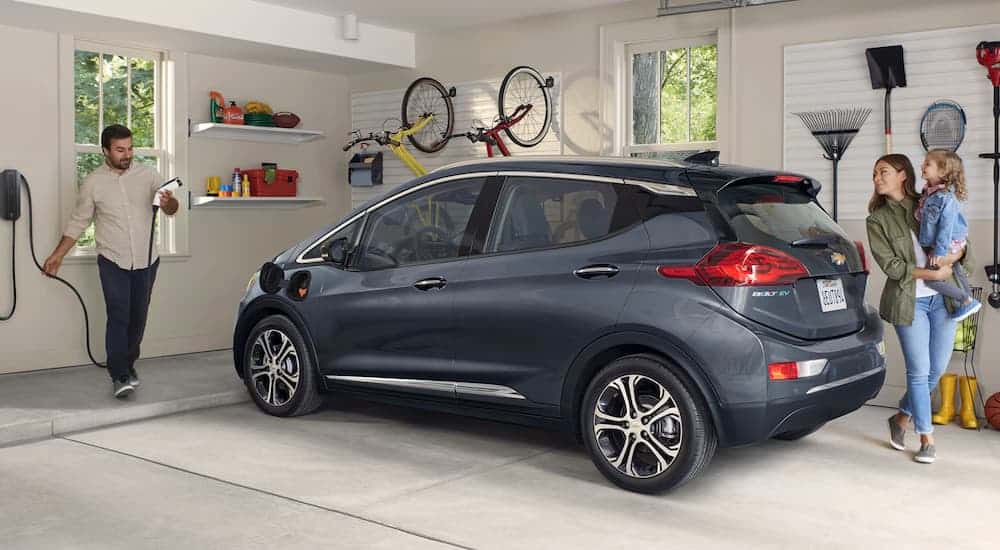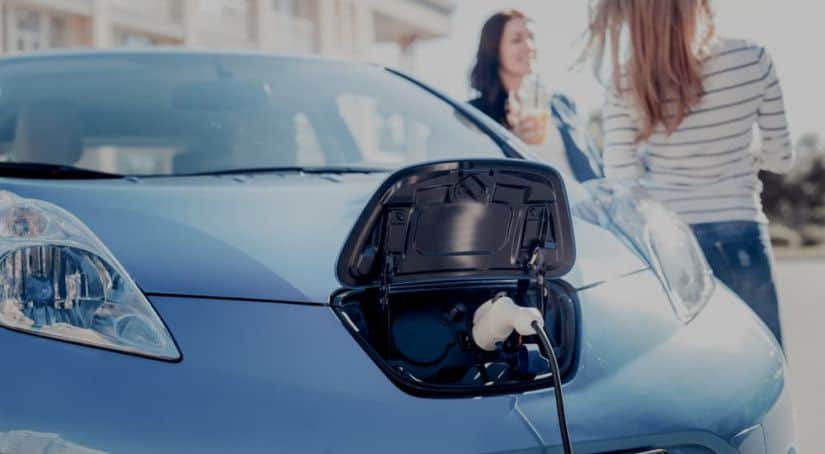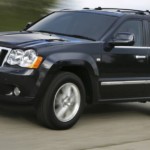One of the dominating trends in current auto news in the automotive industry seems to be the focus on electrified vehicles—electric, hybrid, and plug-in hybrid. While these vehicles are just starting to show up on dealer lots, automakers have been stressing for some time their commitment to sustainable technology, and to a sustainable future. While this hasn’t manifested itself yet in the market, automakers are all-in on this technology, so let’s see if we can catch a glimpse of what the roads will look like in the not-so-distant future.
Accounting for only 2% or less of sales in the U.S., hybrid vehicles, for example, have not taken over the market as some might have expected. Though there have been many success stories, such as the Toyota RAV4, with 25% of sales coming from hybrid models, the overall market complacency to the new technology has not discouraged automakers. Take Jeep—they have vowed to have an electrified version of every Jeep model by 2022.
Electric Jeep Models
Imagine driving in the backcountry in a Jeep Wrangler with the roof and doors removed on a warm summer day, and the only noise you hear is the tires moving over rock, squirrels climbing up trees, and snowmelt in a nearby seasonal creek. This is a future we can all agree on. Jeep plans on introducing three hybrid models by next year. The Renegade, Compass, and Wrangler will be the first to get a plug-in hybrid version, with the other half of Jeep’s lineup to follow shortly after. All-electric Jeeps are also in the plans.
Christian Meunier, Global President of Jeep, has pledged to make Jeep the “greenest SUV brand in the world,” though with so many competitors, this seems more like an attention-grabbing promise than truth. Other automakers with similar goals include Tesla, Ford, and Toyota, just to name a few, and they have a head start on Jeep.
Ford vs Tesla

An interesting competition is developing between Ford and Tesla. Tesla is set to launch the 2020 Tesla Model Y, which will be the upstart automaker’s first entry into the compact luxury SUV segment. And waiting for it in 2021 will be the Mustang Mach-E. Both crossover SUVs are all-electric and have similar ranges, similar horsepower, and torque numbers, and are similarly impressive vehicles.
The Model Y can make 0-60 mph in 3.5 seconds, and so can the Mach-E. For the Mach-E, you’re looking at an option for 450 hp and 612 lb-ft of torque. For the Model Y, you can expect 450 hp and 471 lb-ft of torque, though this is estimated as Tesla does not share horsepower and torque specs. Both SUVs boast a range of about 300 miles, however, so you will be sure to see more and more of these on the road as new technology makes all-electric a viable and practical option.
Toyota Continues a Legacy
What other electrified vehicles can we expect to be sharing the road with soon? Maybe a Chevy Camaro crossover to compete with the Mustang Mach-E? No word on that yet from G.M., but what we can look forward to is the 2021 Toyota RAV4 Prime PHEV. While not all-electric, the RAV4 Prime can travel 39 miles on electricity, before transitioning to gas. You can expect this SUV to arrive in dealerships by the summer.
The RAV4 Prime offers 302 horsepower and delivers 0-60 mph in 5.8 seconds. These are not numbers you expect from a RAV4—you do expect the 40 combined mpg though, which seems more a contradiction than an actual spec. But this is what you can come to expect from SUVs as automakers move away from internal combustion engines and toward technology with different parameters and expectations.
What to Expect From Rivian
It was only a matter of time before electric technology transitioned from compact cars and sedans to SUVs. We happen to be in the midst of this transition, and you can see this already on the margins of the mainstream auto industry. Rivian, for example, a company backed by Ford and Amazon, has made serious inroads in the all-electric market. While it competes in the luxury segment, positioned to compete more with Land Rover than Toyota or Ford, it has put up some serious numbers that portend what you might be seeing from other automakers down the road.
The Rivian R1S, for example, boasts 750 hp and over 800 lb-ft of torque. It also claims to have a 0-60 mph time of 3.0 seconds—just when you thought the Mustang Mach-E and Tesla Model Y couldn’t be beat. It can also tow 11,000 lb. and has a range of 400 miles. These are the kinds of numbers you can expect from electric technology as the market demands a combination of the performance of old-fashioned V8s and the efficiency of zero emissions.
What About Other Popular Brands?
So while Rivian’s technology is not quite affordable yet for its mass-market ambitions—the R1S starts at $72,000 before the Federal Tax rebate and other incentives—it is a sign of what’s to come. What we do have now are some interesting options in other segments. The Kia Niro EV is a great example of this. The Niro EV is part hatchback, part small SUV. With a range of 239 miles, it still manages 201 hp and 291 lb-ft of torque. It can also be recharged to 80 percent in just over an hour on a D.C. fast charger.
The Chevrolet Bolt EV, Nissan Leaf, and Volkswagen e-Golf are all-electric options currently on the market that provide similar range and horsepower. Surprisingly, there is a BMW close in price to these E.V. vehicles. The BMW i3 starts at a reasonable $44,450.

How About Luxury Brands?
The luxury segment has many more options: check out the Porsche Taycan, for instance. This is the world’s first all-electric sports car; it can go 0-60 mph in less than 3 seconds. That’s because it has 680 horsepower at its disposal. It also has a range of 250 miles. Can you imagine a world where you can drive a legendary high-performance sports car and not ever have to stop at the gas station? You can already see how the industry is changing with the availability of new technology.
And, of course, there’s the Tesla Model 3, the best-selling compact-luxury car in America. With up to 580 hp and 481 lb-ft of torque, this is a fun car to drive. With a starting price of $39,990, you can see why it is the most popular car in its segment. The Long Range AWD model has a range of 322 miles, so you will be sure not to have any range anxiety with the Model 3. Tesla says the Performance model can go 0-60 mph in 3.2 seconds, so there’s something for everyone.
Looking Towards an All-Electric Future
While the Tesla Model 3 may have given us the first glimpse into an all-electric future, it’s evident the road ahead has not been cleared just yet. Someday soon, though, you might find yourself on a quiet backroad in a Wrangler, enjoying the peace and tranquility of your all-electric motor, or maybe you’ll find yourself in a Tesla Model 3, driving by one of the last gas stations left on your block. Either way, it seems we’re heading in the right direction, and it will be exciting to see where it leads.



